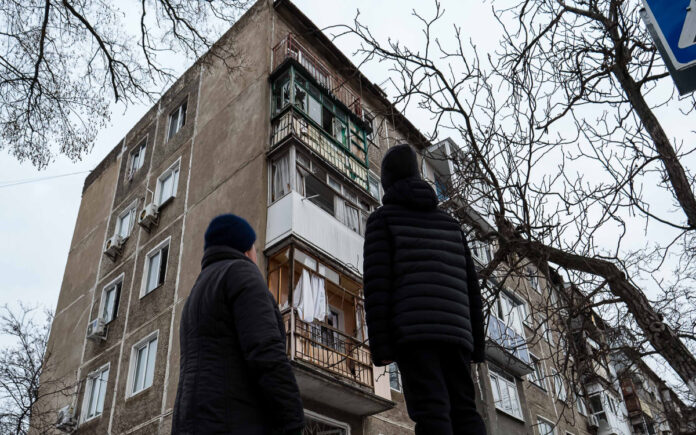Kyiv: A Russian drone strike on Mykolaiv overnight on February 16 has left more than 100,000 residents without heating, Ukrainian President Volodymyr Zelenskyy reported. The attack targeted critical infrastructure, worsening conditions for civilians amid freezing winter temperatures.
Zelenskyy rejected Russia’s assertions of seeking peace, emphasizing that Mykolaiv is not a military target and that the strike was intended solely to inflict suffering on civilians.
“Those who truly seek to restore peace do not act this way,” he wrote on Telegram.
He assured the public that emergency repair crews were already working to restore heating and called on Ukraine’s international partners to strengthen air defenses against Russian attacks.
Wave of Russian Strikes Across Ukraine
The assault on Mykolaiv was part of a widespread overnight attack in which Russian forces launched 143 drones and two ballistic missiles across Ukraine. While the Ukrainian Air Force managed to intercept most of the drones, significant damage was still inflicted on key infrastructure.
Zelenskyy also referred to a recent strike on the Chornobyl Nuclear Power Plant, where a Russian drone attack on February 14 damaged the protective shield over Reactor 4—the reactor that exploded in the 1986 nuclear disaster.
Also Read | UN Seeks $6 Billion to Ease ‘Appalling’ Suffering in Sudan
The International Atomic Energy Agency (IAEA) confirmed that its monitoring team at Chornobyl heard an explosion at 01:50 AM on February 13-14. The blast originated from the New Safe Confinement (NSC), a massive steel structure enclosing the remains of Reactor 4.
Also Read | South Korea Suspends New Downloads of DeepSeek Over Data Privacy Issues
Call for Stronger International Response
Zelenskyy urged the global community to take a firm stance against Russia’s continued attacks on critical infrastructure, including nuclear facilities. He stressed the need for greater military support to counter the growing threat and prevent Russia’s aggression from becoming prolonged or normalized.



